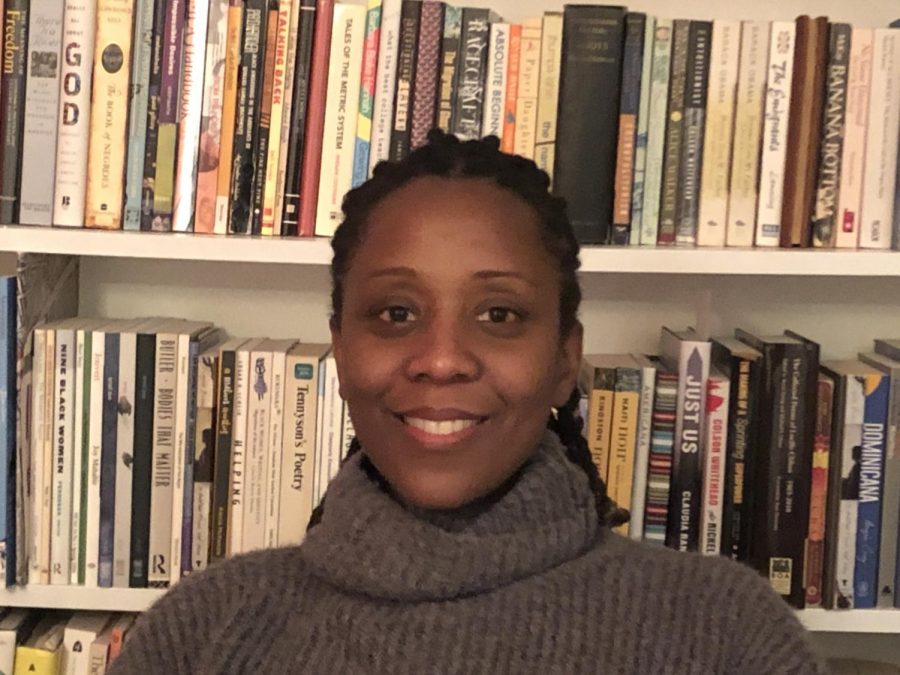Professor Kezia Page and Her Love for Literature
Professor Kezia Page is an Associate Professor of English and Africana & Latin American Studies and is the Director of Colgate’s Africana & Latin American Studies (ALST) Program. Page grew up in Jamaica where her parents, dogs and friends still reside. With a passion for reading and writing, Page has wholeheartedly dedicated her professional career to studying literature, more specifically, Caribbean literature and culture.
When Page was in her first year of high school in Kingston, Jamaica, she had an English teacher named Asjoa Dawes whose father, Neville Dawes, was a very well known Jamaican novelist and poet. Dawes recognized Page’s interest and passion for literature.
“She fed [literature] to me in all different kinds of ways and I did well at it. We are all attracted to what we do well at,” Page explained.
After high school, Page went on to study with Mervyn Morris and Eddie Baugh, two well known Jamaican poets, at the University of the West Indies.
Page goes on to explain that the Caribbean is made up of many islands. Due to the history of imperialism in the Caribbean, different areas speak different languages, and it is actually quite expensive to go from one island to the other. Page reflects on her time at university and how this portion of her life shaped who she is.
“I was decidedly Jamaican, but being a student at the University of the West Indies, I became a Caribbean person.”
Attending university in the Caribbean and studying texts by distinguished poets and authors has contributed to the development of Page’s teaching and research interests.
“It was moving in the literature I was reading, it was moving in the friends that I made and I became confident then that [Caribbean literature] was something I wanted to study,” Page said.
Page moved to the U.S. for graduate school in 1996. Following her passions, Page has now dedicated her career to teaching literature here on Colgate’s campus.
“I am really dedicated to teaching. When I teach, I spend a lot of time preparing [for class], grading and engaging,” Page remarked.
When she is not teaching, Page might be found working on her book. Although it is still in the process of being written, the premise of her book is the exploration of different forms of surveillance in the literature and culture from colonial to contemporary Jamaica. Page has decided to devote part of her book to understanding what it means for religious practice to be surveilling and introduces readers to a musical movement known as Reggae Revival and how artists navigated around surveillance practices. She describes why she decided to write about surveillance in Caribbean literature and culture.
“For scientists it might be studying humans and understanding [which] parts of human beings need to be studied more. [Similarly], I read books and I read culture. So, I saw something [that needed to be studied more]… and I decided I wanted to write about it.”
Page is committed to studying her passions both in the classroom as a professor and outside the classroom as a distinguished researcher. If you want to learn more about Caribbean literature and culture, take her ALST course “The Caribbean.”








